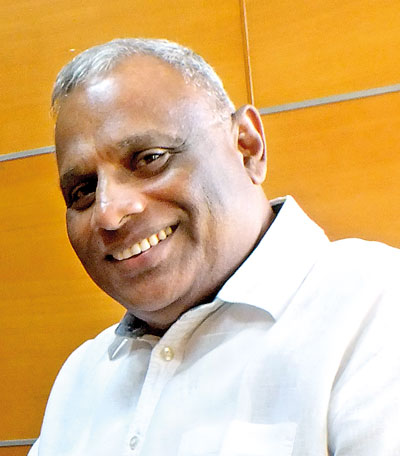Transforming chicken droppings into ‘gold’ energy
The dictum ‘garbage or waste is gold’ is being put into practice world over, but unfortunately in Sri Lanka there appears to be an enormous hick-up in transforming or recycling garbage into energy and fertiliser.

Kumar Perumal EECL Chairman
The concept of transforming garbage to energy is not new and in this country, such proposals of transformation in the past are often thrown to the WPB (waste paper bin) due to bureaucratic lethargy, red tape and corruption.
Around this time last year, Endeavour Energy Corporation Ltd (EECL) an Australian based International corporate entity floated a limited liability company in Sri Lanka to convert municipal waste into energy and fertiliser. Its Chairman, Kumar Perumal, a Sri Lankan domiciled in Australia, came to the country to set up the Sri Lankan counterpart and to deal with the setting up of the factory to convert garbage into energy.
Endeavour’s long-term commitment in the Asia Pacific region is strategically focused towards the development and operation of Green Energy projects, in particular Waste to Energy (WTE) Plants, refuse-derived fuel plants and associated industries processing solid and liquid waste. Endeavour’s complimentary core focus also is to produce bio fertiliser.
The plant, once set up in Katunayake on a 45 acre block of land would produce 10 megawatt (MW) electricity, using the Colombo city garbage.
While setting up of the plant to produce energy and fertilizer from garbage, would you believe that chicken could help produce energy and to be exact chicken droppings?
These days Mr. Perumal again is in Sri Lanka to initiate his extremely ambitious project of converting chicken droppings into energy, a bio-fertiliser project in keeping with the government’s intention to replace chemical fertiliser with bio-fertiliser.
Ductor Pte Ltd of Finland located in Helsinki are experts on recycling chicken litter into energy and fertiliser and to enter into a joint venture with EECL, Petri Peltonen, Deputy Minister of Economic Affairs and Employment, Finland along with Marko Karkkainen, President, Ductor Pte were in Sri Lanka and on June 11, an agreement was signed at the Cinnamon Grand Hotel Colombo by both companies.
The joint venture is a Rs. 50 million investment in which Ductor will have a 15 per cent stake. Ductor would handle the technical part while EECL is responsible for financial and management aspects. Ductor has its main plant in Finland and has put up factories in the US, Germany and Italy and are in the process of setting up of plants in Malaysia, Indonesia and Kerala.
EECL has done in-depth surveys of the country’s poultry farms. Mr. Perumal said that there are 698 large scale poultry farms in Sri Lanka which produce 130 million broilers per annum and their droppings are around 130,000 tons, but nobody in this country knew that chicken droppings could be turned into ‘gold’.
EECL is to enter into an MOU with the poultry farmers association to ensure the droppings supply with the farmers appreciating such a plant as all this time it has been a big burden to dispose this waste.
While this plant too could produce 10 MW electricity the bio fertiliser could be used in paddy, tea, rubber and vegetables. Next week Mr. Perumal would be travelling to Italy and Finland to learn first-hand the operation and production of bio fertiliser out of chicken droppings.
The plant capacity could be adjusted to take in droppings with the increase of the birds and have found that there are also many poultry farms in the Northern and Eastern Provinces. The company has plans to extend to other areas too, Mr. Perumal asserted. He said that in this waste there is ammonia which is injurious to the soil and this ammonia content is separated and with the addition of sulfuric acid they are turned into ammonium-sulphate.
Around 65,000 tons of ammonia is imported to Sri Lanka and Mr. Perumal said that their plant could produce 50 per cent of this requirement and thereby save a considerable amount of foreign exchange to the country.
He said that in addition to the large number of poultry farms, there are also a number of piggeries in the country and they could also turn pig waste into energy and bio fertiliser.
He said that the company has dispelled fears that the transportation of this waste from the farms to the plant will cause spillage on the roads and bad smell. The company is obtaining specially manufactured trucks from China on a German design to ensure that there will be no spillage or obnoxious odor. He said that once the bio fertiliser plant is set-up in Sri Lanka it would be the launching pad to South East Asia and West Asia.


